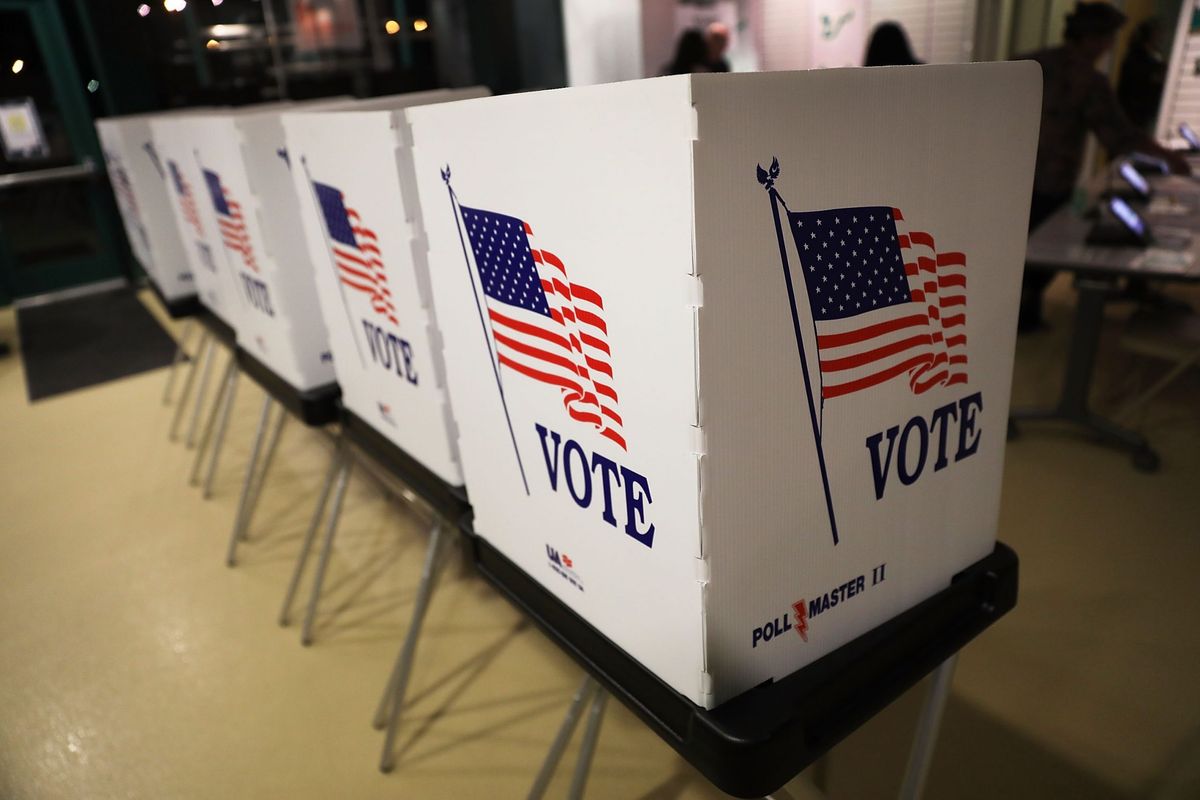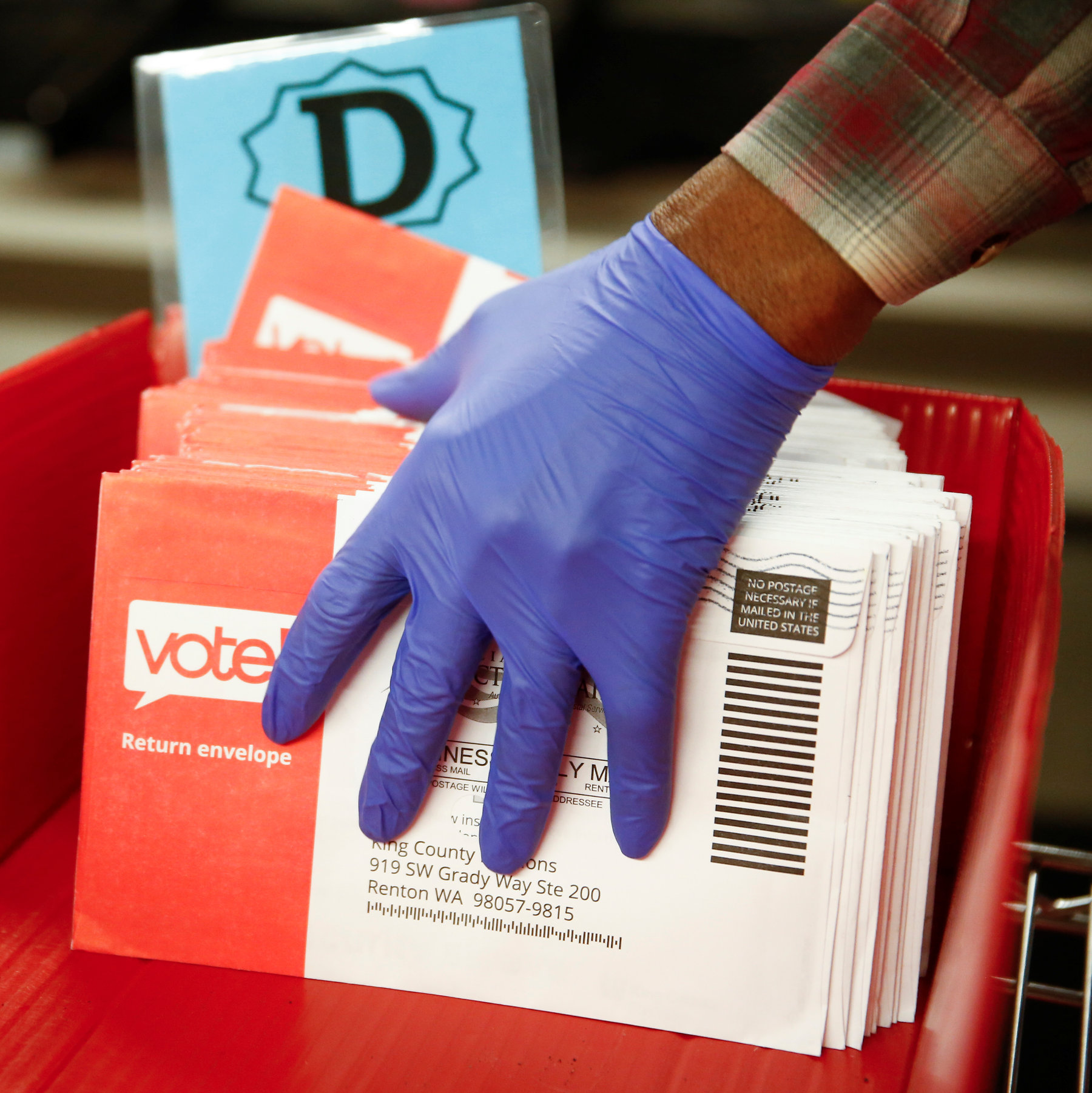Will voter suppression efforts shape the 2020 election?

A few minutes every morning is all you need.
Stay up to date on the world's Headlines and Human Stories. It's fun, it's factual, it's fluff-free.
Political experts frequently state that the 2020 election could be determined by voter turnout with the conventional wisdom being that more voters would be better for Democrats while fewer voters would be better for Republicans.
That belief appears to be shared by both parties, with Democrats pushing to make voting easier and more accessible, and Republicans citing voter fraud as a reason to add new levels of security to the process.
With little evidence of voter fraud, many political experts deem the various “voting security” actions pushed by Republicans as intentional voter suppression. With the COVID-19 pandemic adding an extra layer of uncertainty to an election that is already facing foreign interference, efforts at ensuring strong voter turnout are butting up against efforts to prevent fraud, real or otherwise.
Rocking the vote
Writing for the progressive magazine The American Prospect in March 2020, political organizer Robert Creamer claimed, “increasing turnout is the most likely path to Democratic victory. That is true whoever is the ultimate Democratic nominee.”
This aligns with the general political wisdom (and the 2018 midterm election results) that finds that Democrats do better when more people vote.
Voter turnout in national elections has become politicized. Democrats regularly advocate for voter registration efforts and support making it easier to register to vote. In contrast, the Republican Party has increasingly focused on preventing voter fraud, even while voting down election security bills in the Senate.
Former Vice President Joe Biden, the presumptive Democratic nominee for president in 2020, has stated that he supports automatic and same day voter registration, which have both been said to increase voter turnout.
Biden’s success in the Super Tuesday primaries was attributed to a voter surge.
Voter registration campaigns, such as Rock the Vote and Democracy Matters, which have been around for decades, are nonpartisan and intentionally do not advocate for any candidate. Still, the founder of Rock the Vote, record executive Jeff Ayeroff, has a history of donating to Democratic candidates and liberal groups.
Protecting the vote
Contrary to conventional wisdom, research by the poll tracking site FiveThirtyEight suggests that increased voter turnout isn’t inherently favorable to Democrats or Republicans, at least not when broken down by state.
Nonetheless, prominent Republicans, including President Donald Trump, have railed against efforts to make voting easier, citing voter fraud.
Supporters of the president fervently believe that voter fraud is a genuine concern. Trump has repeatedly claimed – and repeatedly faced critical fact checking – that there were millions of fraudulent votes cast in California during the 2016 election. He has provided no evidence for this claim.
But it isn’t only Trump. The current chair of the Republican National Committee, Ronna McDaniel (the niece of Republican Senator Mitt Romney), has accused Democrats of attempting to “destroy” election integrity.
The New York Times reported on a Republican effort to recruit 50,000 volunteers to serve as monitors at polling places across 15 key states. This is part of a larger US$20 million election plan that the Republican Party is using to protect voter restrictions in court.
With states enacting stricter voter registration laws, the Democratic Party has been filing lawsuits to challenge those laws.
Voter suppression efforts
New Republican efforts to dampen voter turnout are a result of a judge’s 2018 decision that overturned a 1982 consent decree. That decree came after a 1981 lawsuit brought by the Democrats successfully argued that Republicans’ “ballot security” efforts were actually attempts at voter intimidation and Republicans were restricted from using such tactics.
With the removal of the decree, Republicans are again permitted to use tactics like polling place monitors, which experts fear will discourage potential voters from voting. In the past, these monitors were retired or off-duty police officers who were sent to monitor polling places in minority communities.
Black voters overwhelmingly support Democrats.
Even prior to these latest efforts, political experts had called many Republican “voter security” efforts of the last decade voter suppression tactics aimed to suppress minority turnout.
Republican-controlled states have closed polling places in many non-white neighborhoods and mandated that would-be voters must have photo ID in order to vote. Though Republicans state that photo IDs will prevent duplicate voting or voter impersonation, obtaining a photo ID can be a time-consuming and costly process for many voters, according to the ACLU.
Florida is one of numerous states currently facing a lawsuit because of newly created voting laws.
After voters in Florida returned to felons their right to vote in a 2018 ballot measure, Ron DeSantis, the Republican governor, and the Republican-controlled legislature passed a law requiring felons to pay an assortment of fees before being able to vote.
A federal lawsuit challenging the law claims that it’s essentially the same as the illegal poll taxes Southern whites used to keep newly freed slaves from voting after the Civil War.
Voting by mail

One of the many fights during the 2020 election will be over Democratic efforts to increase the ability of citizens to vote by mail. This push comes in response to the COVID-19 pandemic, which has already led multiple primaries in the presidential election to be canceled or postponed.
In Wisconsin, where primaries were held on April 7, health officials determined that multiple coronavirus cases were linked to people voting in person.
Despite the potential health risks if the pandemic hasn’t been brought under control by November, vote-by-mail initiatives have become yet another victim of partisan divide.
Republicans, led by Trump, have claimed that allowing citizens to vote by mail could lead to widespread fraud. However, five states – Colorado, Hawaii, Oregon, Utah and Washington – already conduct all-mail elections.
In a March appearance on Fox News, Trump appeared to suggest that an alternative reason for opposing vote-by-mail elections is increased voter turnout.
Speaking on “Fox and Friends” about a Democratic stimulus proposal that included election funding, Trump said, “They had things, levels of voting that if you’d ever agreed to it, you’d never have a Republican elected in this country again.”
Ironically, a special election in California that was done almost exclusively by mail resulted in a Republican victory for a seat in the US House of Representatives. The election was held on May 12 and mail-in votes were allowed up until election day.
On May 13, the incumbent Democrat, Christy Smith, conceded the election to her Republican challenger, Mike Garcia.
At the state level, a number of Republican officials have expressed dismay at efforts to prevent vote-by-mail measures.
In Republican strongholds like Kentucky, absentee voting options would almost certainly not hurt the party. But with the president using his national platform to claim such efforts would lead to voter fraud, many Republicans are resistant to support them.
The risk of voter fraud
Concerns over voter fraud, especially as it relates to fake votes, have largely been held by conservatives. Researchers have said that voter fraud is rare and nowhere near as serious a threat as other forms of election malfeasance, such as foreign interference.
In a three-year period from 2002 to 2005, only 26 people were convicted of an election-related crime, and only 40 were indicted. Most of the cases were related to vote buying, voter intimidation, or ballot forgery.
Republicans and conservative groups have argued that voter fraud is far more prevalent, though even their own research undercuts that assertion.
The Heritage Foundation, a conservative think tank, has documented just under 1,300 “proven instances of voter fraud” across multiple decades of voting. Those cases resulted in 1,110 criminal convictions, but include instances where voters were accidentally registered at two addresses and received a public reprimand and no fee.In a database that goes back to 1979, the Heritage Foundation has logged just over 100 cases of “Duplicate Voting,” while only 13 separate cases were classified as “Impersonation Fraud at the Polls.”
Have a tip or story? Get in touch with our reporters at tips@themilsource.com
Sign up for daily news briefs from The Millennial Source here!




Comments ()